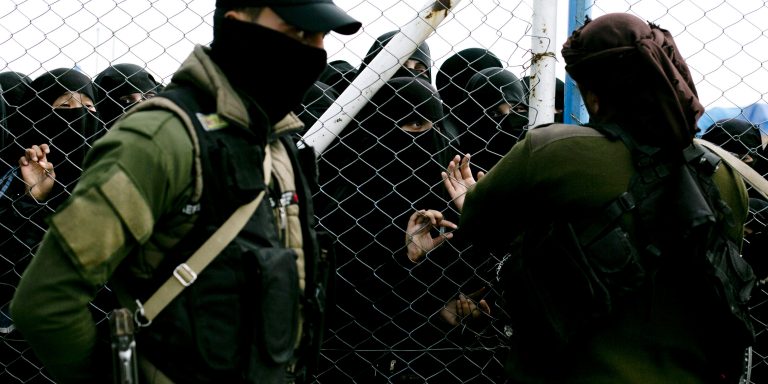INTELBRIEF
May 16, 2019
IntelBrief: A Crisis in the Camps

- Most states, particularly those in the West, have refused to repatriate their citizens who joined the Islamic State and who now reside in crowded camps.
- Thousands of Islamic State family members are being held in the al Hol Camp in Syria, living in fetid conditions with no clear next steps.
- It remains a challenge to prove whether individual Islamic State supporters and family members committed crimes due to the lack of documented evidence in many cases.
- There needs to be a more focused effort on repatriating Islamic State family members, particularly children, to avoid creating a new generation of IS supporters.
.
The conditions in the camps holding members of the so-called Islamic State and their families continue to deteriorate as the situation and sense of desperation grow more acute by the day. There are more than 13,000 foreign Islamic State supporters in the al Hol camp in Syria, 12,000 of whom are women and children. Many of these children were born in the Caliphate after their parents left their respective countries to join the Islamic State. Their fate, as well as the fate of all the foreign members and supporters of the terrorist group, remains in limbo. Most nation-states have refused to take back their citizens, choosing instead to let them languish in overcrowded camps where the prospects for extremism and radicalization loom large.
There are obvious political reasons why states and governments have eschewed making difficult policy decisions on whether to accept returning Islamic State fighters and their families, especially those that have been implicated in terrorist acts and other heinous crimes. But there are also a host of legal, ethical, and moral considerations that need to be weighed against political ones. Moreover, there are practical reasons why states should do more. Kurdish militias are currently responsible for administering camps where tens of thousands of prisoners and refugees are detained together. As conditions in the camps grow worse, there is a palpable sense that if the West fails to intervene, the camp’s occupants may form the cornerstone of the next generation of Islamic State supporters. It is not only states in the West that need to formulate a coherent approach for how to deal with their citizens, but those in the region, too, including states like Tunisia which has thousands of its citizens detained in camps in Syria, Iraq, Libya, and elsewhere. The U.S. has publicly called for other countries to take back their respective Islamic State detainees and their families, even as Washington has not yet laid out a clear strategy for how to deal with returnees. Politics also drive the reluctance of countries like Tunisia, where politicians are hesitant to support bringing back citizens who may not rehabilitate, but instead join new or existing terrorist movements or plot attacks from Tunisian soil. Still, the current status quo is unsustainable.
The Iraqi government is overwhelmed with tens of thousands of its citizens who joined and fought for the Islamic State. Trials of dozens of suspects at once, some lasting a mere few hours, have been followed by mass executions. This process has become so common it has now a hallmark of the Iraqi justice system. In Syria, the issue is even worse—in SDF-held areas, there is no functioning court system, nor are there permanent detention centers. The camps currently housing people were never designed to become prisons. The Kurds have no training in managing jails. The situation is a security nightmare and prison break attempts are inevitable.
Determining the individual culpability of Islamic State members who do get repatriated is a significant challenge. Witnesses have fled, been killed, or are too scared to talk. Battlefield evidence is rare and even where it exists, remains disputed depending on the specific court setting. Most of the captured fighters refuse to accept responsibility for their actions, implausibly asserting that their role in the Caliphate never went beyond being a cook, clerk, or driver. Very few have confessed to the crimes they committed as part of the group. The women who traveled to join the Islamic State represent a complicated subset of those who are being detained. Some were there at the behest of their husbands, but others played integral roles as recruiters and propagandists. The foreigners who traveled to Iraq and Syria to join the Islamic State are responsible for countless acts of injustice. Their home countries should ensure that these individuals do not languish in poorly-kept jails or exit to other countries where they are likely to continue fighting their cause of global jihad.
.
For tailored research and analysis, please contact: info@thesoufancenter.org
[video width="960" height="540" mp4="https://thesoufancenter.org/wp-content/uploads/2019/05/IB-0516.mp4" poster="https://thesoufancenter.org/wp-content/uploads/2019/05/AP_19095482744997.jpg"][/video]